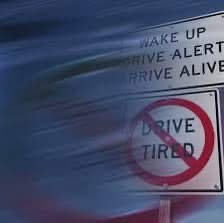Just like drunk, drugged, and distracted driving, drowsy driving is a real public health issue, causing thousands of car crashes each year and killing an estimated 6,400 people in the U.S. alone according to the AAA Foundation for Traffic Safety. The National Highway Traffic Safety Administration reports an estimated 100,000 crashes each year are caused primarily by drowsy driving, resulting in more than 71,000 injuries and $12.5 million in damages.
Tips to Drive Alert:
💤 Getting adequate sleep on a daily basis is the only true way to protect yourself against the risks of driving when you’re drowsy.
💤 Before the start of a long family car trip, get a good night’s sleep, or you could put your entire family and others at risk.
🚗 Many teens do not get enough sleep at a stage in life when their biological need for sleep increases, which makes them vulnerable to the risk of drowsy-driving crashes, especially on longer trips. Advise your teens to delay driving until they’re well-rested.
🚗 Avoid drinking any alcohol before driving. Consumption of alcohol interacts with sleepiness to increase drowsiness and impairment.
🚗 Always check your prescription and over-the-counter medication labels to see if drowsiness could result from their use. If you take medications that could cause drowsiness as a side effect, use public transportation when possible.
🚗 If you drive, avoid driving during the peak sleepiness periods (midnight – 6 a.m. and late afternoon). If you must drive during the peak sleepiness periods, stay vigilant for signs of drowsiness, such as crossing over roadway lines or hitting a rumble strip, especially if you’re driving alone.



















